 |
||
Home > TERATEC FORUM > Workshop 8
Modeling and data for urban systems
The deployment of huge numbers of sensors and the availability of a vast amount of data related to new data processing capabilities requires the development of new management and governance tools for urban systems.
This workshop is designed to review the design and development techniques used for coherent databases of models and software tools for analysing, simulating and optimising operating for new or existing urban systems seen as a single integrated system:
-
design tools for planning and programming – system approach (urban functions, the environment, economic and social aspects including education and culture, etc.), together with physical and economic models and actors and games
- real-time activity management (energy, water, waste, transport, communications, healthcare and security, etc.)
|
|
|
|
|
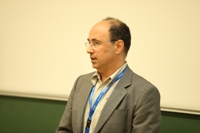 |
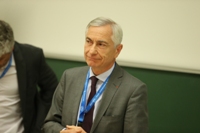 |
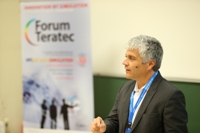 |
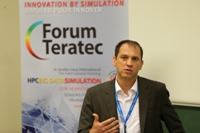 |
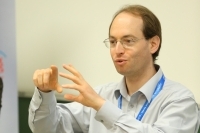 |
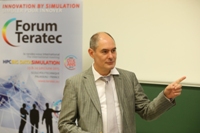 |
Our constantly growing cities are consuming more and more resources while struggling to reduce their greenhouse gas emissions. Their development is regularly interrupted by chronic problems (air pollution, shrinking cities, etc.) and natural disasters (such as hurricanes and tsunamis) that cause quality of life to suffer for residents.
Cities are an archetype of complexity, generating endless issues that require vast quantities of computing power. At the same time, the cost of software tools is almost laughable today when weighed against their potential benefits.
As a result, developing software tools for modeling and simulation, as well as for governing and managing urban systems, creates an opportunity to analyze, simulate, and optimize the way urban systems work as a whole and to enable city stakeholders (elected officials, residents, and companies) to make enlightened decisions.
The models we must develop require collective initiatives and involve a wide variety of stakeholders (local governments, architects and urban planners, engineers, operators of urban services, project managers, and software publishers) while requiring a certain level of interoperability (open source and/or proprietary solutions).
Cities are constantly changing, and the sudden emergence of digital technology seems only to have increased the pace of that change. New construction, transforming technical networks, and interconnected types of mobility are just a few of the areas in that change every day, making a city a living organism aspiring to eternity. This characteristic is an essential difference from the industrial purposes for which simulation is traditionally used, and poses a challenge for digital representation, which has a difficult time representing the full dynamic complexity. In addition, a city is not "made" by and does not belong to any particular individual; instead, it belongs to all network operators, service providers, manufacturers, and more generally all economic players, elected officials, and residents. All of those stakeholders can represent their city and take part in modeling and simulating physical and natural phenomena, activities and business in the city, in order to predict its development, measure and counteract risks, and make essential choices to help the city evolve sustainably. This workshop called on specialists from various fields—city planning, architecture, construction techniques, natural hazards, and atmospheric pollution modeling—to attempt to determine how modeling and simulation can be applied to the transformation of cities.